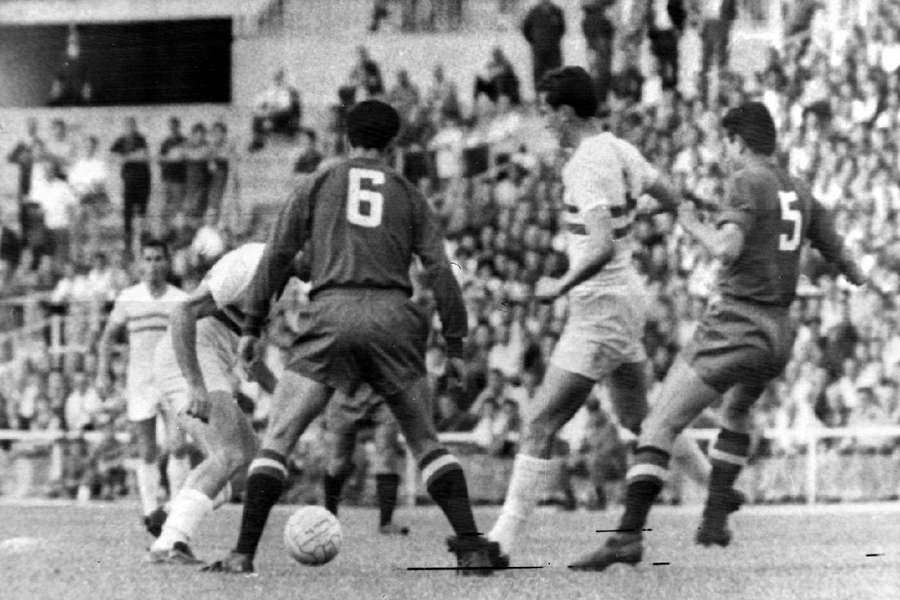EURO Rewind: Spain win on home soil in 1964 in duel of political perspectives

After the Soviet triumph at the first Euros, the 1964 tournament was once again a politically charged affair.
But unlike the previous edition, interest was much higher, with 29 teams announcing their presence for the knockout stages (Greece withdrew for political reasons after being drawn against Albania).
Luxembourg proved to be a giant killer in qualifying: they beat the Netherlands 3-2 over two legs (1-1 and 2-1), then drew with Denmark 3-3 and 2-2 before losing the replay 1-0. It was then more than 30 years (1995) before the tiny nation's next win in a Euro qualifier.
Ole Madsen scored 11 goals in qualifying for the Danes but then turned down a professional contract with Barcelona in 1964 because only amateur players could play for the Danish national team.
After banning the Spanish national team from participating four years ago for fear of losing on aggregate, General Franco not only agreed to Euro participation but also agreed to let the country host the mini-finals, which also included Denmark, Hungary and the USSR.
A final with ideological overtones
After Spain beat Hungary 2-1 in extra time and the USSR defeated Denmark 3-0, things were set for a duel of ideologies: far-right vs communism.
For the second time in a row, the weather didn't help. On a rain-soaked pitch, ball control proved unusually difficult, but that didn't stop two goals from being scored in the first ten minutes (Chus Pereda '6, Galimzyan Khusainov '8).
It was the first final marked by controversy over refereeing decisions. The Iberians called for a penalty twice, only for Pereda to evade a tackle by Viktor Anichkin, break towards goal and score, only for referee Arthur Holland to call a foul and overturn it, to the astonishment of an entire stadium.
The final looked to be heading for extra time again when, with six minutes of normal time remaining, Marcelino blew the Santiago Bernabeu stands to pieces.
Pereda's cross found the striker's forehead and he headed home to give the hosts a historic triumph.
The television broadcast of the match missed the goal and to make amends showed an earlier Amancio Amaro cross as the goalscoring effort.
Archival footage uncovered over the years, however, proved right, with Pereda eventually appearing on the small screen as the scorer of the decisive goal.
"We were a really good team," Pereda told uefa.com years later.
"We had Luis Suarez in charge of the orchestra. Then we had great players like Amancio and Marcelino, who was a natural goalscorer. It was a fantastic team, really."
